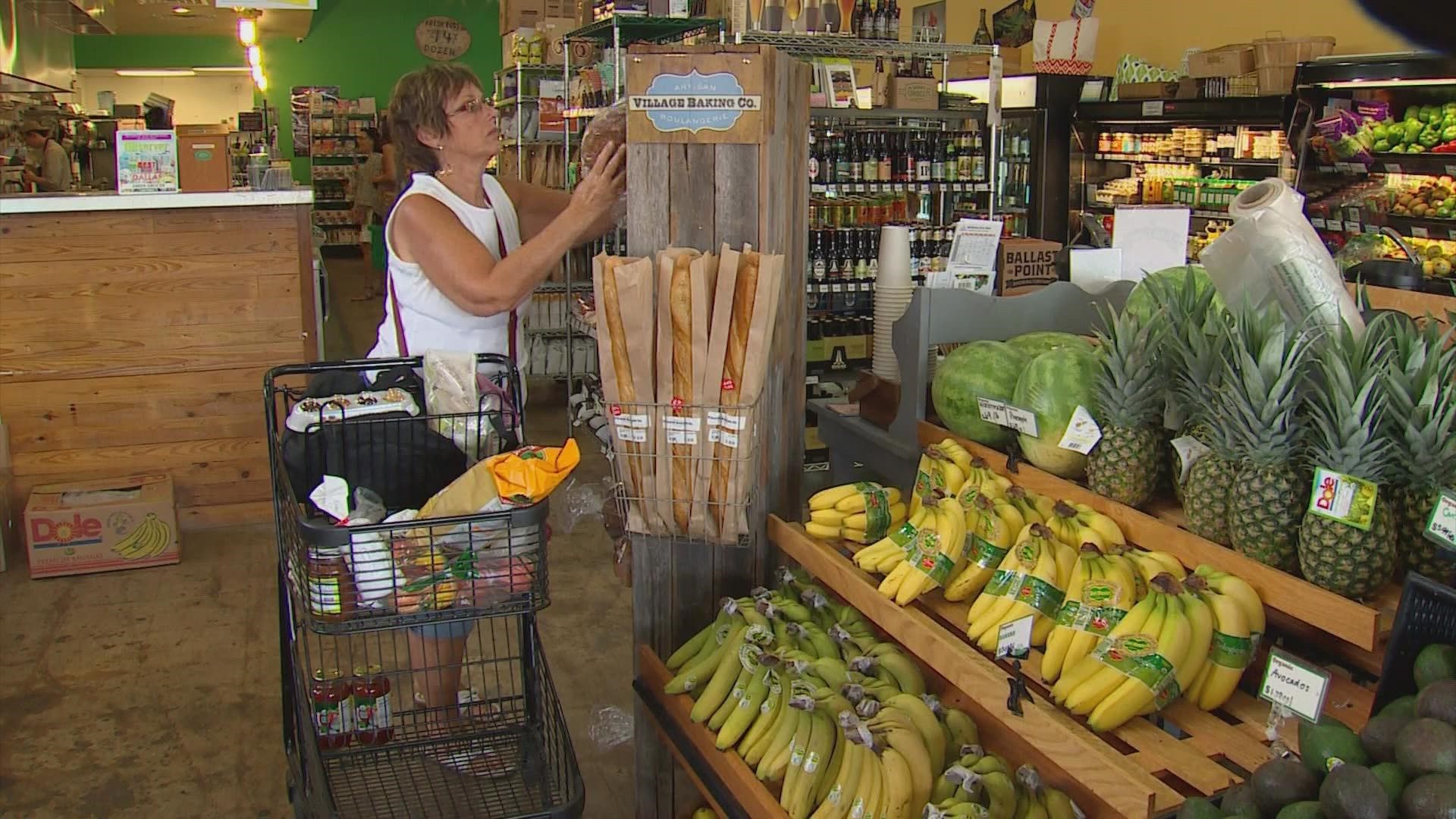DALLAS — Sticker shock at the grocery store and gas pump is real.
The U.S. Bureau of Labor and Statistics released data showing just how steep of a price hike North Texans are experiencing on everything from food to cars to medical care.
From March 2021 to March 2022, Dallas-Fort Worth saw inflation of 9% -- the largest year over year increase since December 1981.
It’s also slightly higher than the national 8.5% inflation rate.
And the trend only increased in the last few months.
Prices in the D-FW area were up 3% from January 2022 to March 2022.
The BLS calls that the largest bi-monthly change in D-FW since April 1980.
Gas prices experienced the biggest spike – with the average price up 48% in the last 12 months.
Grocery prices went up 13.7%, with the biggest increase being a 22.1% hike in meat, poultry, fish and egg prices.
Rent is up 7% over one year ago, new vehicles up 5.2%, and the cost of used cars and trucks spiked 34.3%.
It costs a lot more to live and some families just can’t make ends meet, said Metrocrest Services CEO Tracy Eubanks.
The non-profit organization based in Carrollton says food pantry visits went up 37% from February to March.
“Most of the families we serve do have jobs or they have some form of income,” Eubanks told ABC News. “But income is not matching the rise in expenses right now.”
Mary Beth Snyder is a pharmacy tech who retired in 2020 because health issues kept her from doing the physical work her job required.
She’s trying to live off about one-third of what she used to make, and the rate of inflation in North Texas is making it more difficult than ever.
“I watch everything I buy. I look for the dollar amount and I look for all the things I can do to save money,” Snyder told ABC.
Like most families who seek assistance from Metrocrest Services, Snyder said she’s used to living on a budget.
But the budget is virtually impossible to balance when money is going out faster than it is coming in.
Years ago, Snyder volunteered at the same food pantry where she’s now a client.
“Choices that are tough are made all the time,” Snyder said.

